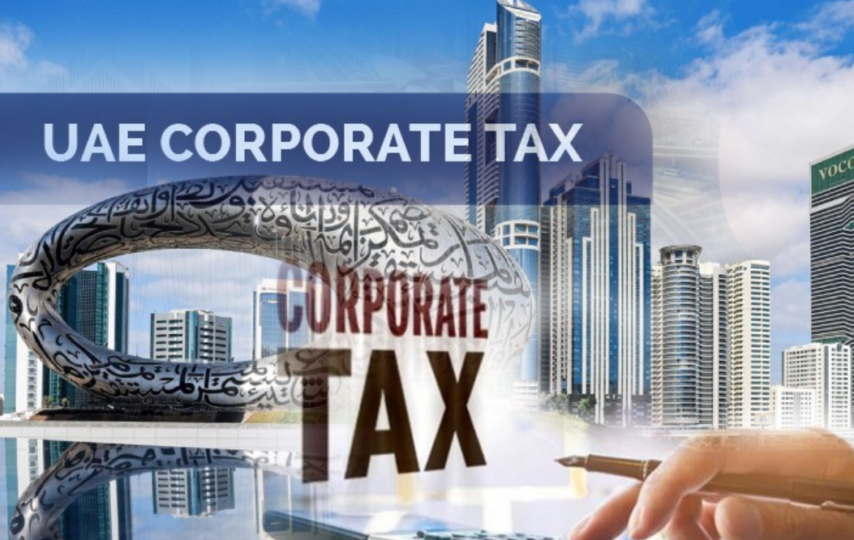The corporation tax will be levied on earnings made by organizations and people legally recognized as persons who participate in the business, commercial professional, or any other type of economic activity requiring a permit or authorization, subject to certain exclusions and restrictions.
The verge of the epoch in which the majority of enterprises in the UAE do not reimburse corporate tax on their business profits is signaled by the introduction of the federal-level corporate tax in UAE. Although the UAE corporate tax rate is only 9%, it is still extremely low by international doctrines, making the country appealing to overseas investors.
What are the central criteria for rates of corporation tax?
Corporate taxes are generally not paid by firms in the United Arabs Emirates. A fifty-year tax freeze on corporate income is often available to free zone businesses. To be liable to exclusions, UAE corporate income taxes will be levied on all UAE enterprises starting on 1st June 2023.
UAE corporations pay 9% in corporate taxes. All enterprises within its scope with net revenue or taxable earnings of 375,000 dirhams or more must comply to be subject to it. Accordingly, small firms with taxable income under 375,000 dirhams will continue to pay no tax, keeping the rate at zero percent.
A person’s employment-related income will continue to be excluded. Nonetheless, if an individual’s earnings from freelance work and other endeavors that need consent or permit surpass the 375,000 dirhams threshold, that income would be subject to corporate tax in UAE at a rate of 9%.
Is corporate tax in UAE applicable to freelancers?
The UAE’s Ministry of Finance corroborated that although the new tax will be levied on all enterprises and commercial ventures conducted within the United Arab Emirates, it will not pertain to individuals’ earnings from real estate, employment, equity undertakings, or other sources of personal earnings unconnected trade or business in UAE.
However, the real question is how will this affect freelance professionals when the corporation tax is applied to people who have – or who must receive – a company license or permit to engage in the necessary industrial, commercial, and professional activity in the UAE. Although we cannot exactly predict it before the implementation of the final law and further details, the most reliable answer is that a licensed freelancer’s income exceeding the amount of 375,000 dirhams in UAE will be subject to corporate tax.
When it gets to the complex topic of taxation, not everybody is conscious of their actions to maintain their status as tax-paying individuals and entities. At this time, hiring knowledgeable corporate tax advisors is essential to safeguard individuals and corporations from legal ramifications. With the assistance of a corporate tax consultant Dubai, you can keep your tax affairs in order, make your payments timely, and maintain the esteem and status that come with reimbursing your tariffs.
Is VAT applicable to freelancers in UAE?
Since Value Added Tax (VAT) was implemented in the UAE, the majority of firms have quickly adapted and made the necessary adjustments. However, the requirements for freelancers and other independent contractors and how they will be paid surprised them. Three forms of taxation apply to independent contractors. Everything is based on your income, which must also be supported by records.
Anyone who has earned less than 187,500 dirhams as a freelancer is not eligible to register and is not required to pay Value Added Tax. 187,500 dirhams to 375,000 dirhams earners have the option of registering or not. For them, it is entirely discretionary. However, if your income is exceeding 375,000 dirhams then you have to register for VAT.
In what cases individuals will not be liable for corporate tax?
The following categories enclose non-taxable income sources;
- Compensations and other earnings from the job, in the public or private area. Wages, salaries, tips, gratuities, and any commissions are all considered to be earned income.
- Personal ventures in precious metals or real estate, unless consent or consent is required to conduct the business commercially. If a business permit is required to conduct the activity, then the person will be charged corporate tax.
- Revenues, capital earnings, and any additional income derived from ownership of personal capital interests, such as capital trading or stock purchases.
- Interests and any additional revenue from bank accounts or savings plans.
Who are individuals? Does corporate tax law recognize freelancers as individuals?
Any regular person who operates a business earns a living or makes investments in the UAE is considered an individual. Freelancers can be recognized as individuals or natural persons that may or may not be liable to pay the corporate tax in UAE. Only those individuals are taxed by the new corporate tax legislation that needs a permit or trade license for business activities.
What’s the corporate tax regime for individuals?
Individuals who operate a business in the United Arab Emirates under a commercial permit, such as a freelance permit, would be subject to corporate tax, according to the Ministry of Finance’s FAQs (frequently asked questions) page.
Corporate tax advisory services
When it gets to the complex topic of taxation, not everybody is conscious of their actions to maintain their status as tax-paying individuals and entities. At this time, hiring knowledgeable corporate tax advisors is essential to safeguard individuals and corporations from legal ramifications. With the assistance of our corporate tax consultants, you can keep your tax affairs in order, make your payments timely, and maintain the esteem and status that come with reimbursing your tariffs. We can advise you on the effects of corporation taxes on your company and assist you with the entire registration procedure so you can maintain compliance.







